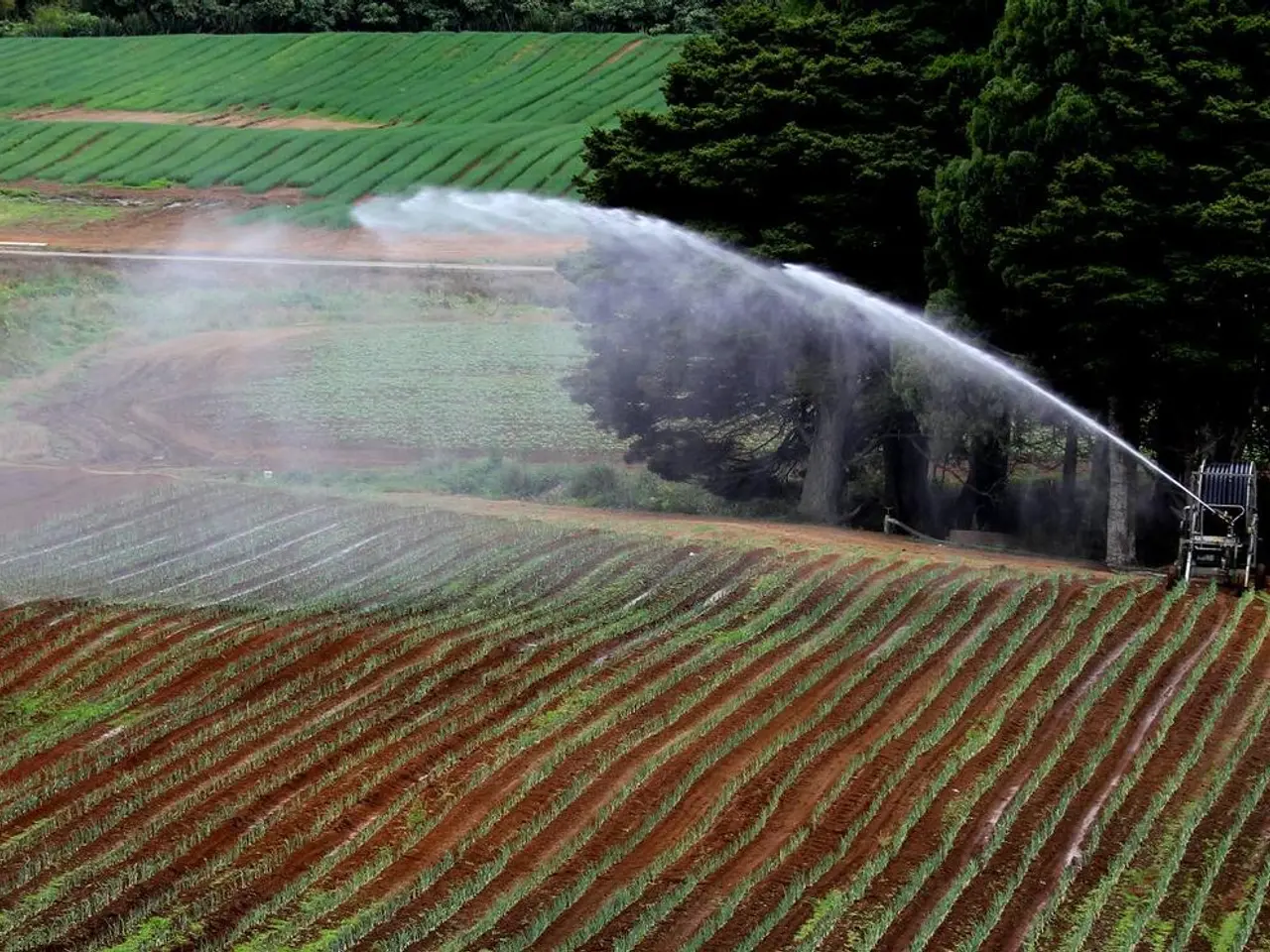Toyota's Kaizen Initiative Yields Staggering Results in Agricultural Sectors
Toyota Boosts Farming Productivity with Lean Management
Toyota is revolutionizing the farming industry by applying its renowned Toyota Production System (TPS) to agricultural processes. This approach, rooted in lean manufacturing and continuous improvement (kaizen), aims to simplify workflows, eliminate waste, and enhance process efficiency [3].
In the city of Yatomi, Aichi Prefecture, Toyota is collaborating with Nabehachi Nousan, one of the largest rice growers in the region, to streamline farming operations. The project, which initially faced skepticism from farmers, is now yielding significant results [1].
Key elements of Toyota’s approach include:
- Transferring lean principles beyond automotive manufacturing: Toyota actively promotes TPS in non-manufacturing sectors, adapting its core strengths like waste reduction, standardization, and respect for people to farming and other industries [3].
- Continuous improvement (kaizen): Encouraging ongoing incremental enhancements in productivity and process quality based on data-driven feedback and problem solving [3][2].
- Focus on people and teamwork: Toyota emphasizes respecting human capabilities and fostering collaboration among workers to identify inefficiencies and develop better workflows, consistent with lean leadership philosophy [2].
- Avoiding automation without simplification: When applying technology, Toyota first seeks to simplify processes to eliminate non-value-added steps before introducing automation or AI, preventing automation of waste and ensuring sustainable productivity gains [2].
At Nabehachi Nousan farm, the implementation of TPS has led to a reduction in wasted time due to improved shovel storage organization [2]. Visualizing the farm's annual work plan has helped highlight issues and make improvements, including the use of white lines as a kaizen idea, a reference to Toyota's genba, a term often used in the Toyota Production System [2].
One of the most significant improvements has been in the consistency of plowing rice fields. Initially, slower workers were criticized, but later it was found that they were the benchmark for efficient work [2].
The project has also led to a reduction in the number of seedlings produced at Nabehachi Nousan farm, reducing waste and increasing revenue from other crops [2]. Drier capacity management has led to a reduction in working hours from 1,750 to 800 during the peak season [2].
A skill map has been implemented to even out workloads, reduce risks, and develop talent by motivating employees to master multiple skills [2]. Raising workbench legs for seeding work has helped prevent back pain among employees [2].
President Yagi of Nabehachi Nousan, who initially had concerns about Toyota taking over the farm, has now embraced the improvements in the growing process of rice [1]. Communication with farmers and making gradual improvements based on concerns and ideas from the field are emphasized in the project [2].
Tatsuya Hirai, Senior Expert in the Agriculture & Biotechnology Business Div., is involved in the project [1]. Toyota is conducting research in the field of farming, demonstrating a commitment to improving productivity and sustainability in the agricultural sector [1].
While close calls occurred when attempts were made to manage the fields using maps, as new employees unfamiliar with the area sometimes got mixed up and almost ended up planting in neighboring fields [2], the overall impact of Toyota's involvement has been positive, aligning with similar lean farming initiatives worldwide that aim to boost efficiency, reduce costs, and improve outcomes on the farm [5].
- Toyota's lean management principles, traditionally used in the automotive manufacturing industry, are being extended to other sectors, such as the fashion-and-beauty or home-and-garden industries, with the aim of streamlining workflows and enhancing process efficiency.
- By continuously improving business practices, companies in the finance industry can potentially reduce waste and increase productivity, similar to how Toyota's approach has significantly improved farming operations at Nabehachi Nousan.
- As technology continues to advance in the industrial sector, manufacturing companies can aim to simplify their processes before introducing automation or artificial intelligence, following Toyota's approach of avoiding automation without first eliminating non-value-added steps.
- Embracing a lifestyle centered around continuous improvement, as seen in the implementation of lean management in farming and other industries, can lead to increased productivity, reduced costs, and improved outcomes in various aspects of life, from personal hobbies to professional businesses.




